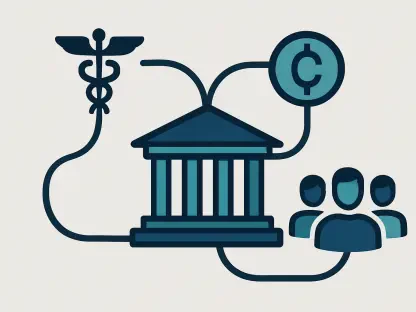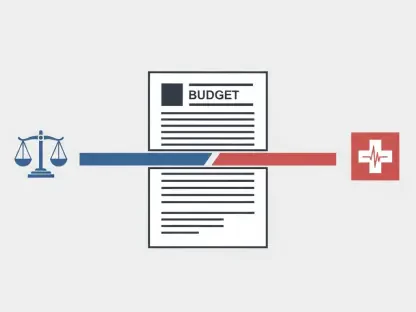The legislative process in Nebraska surrounding medical cannabis has been fraught with complexities, illustrating a profound disconnect between public opinion and political action. Despite overwhelming voter approval in recent elections, Legislative Bill 677, aimed at providing a regulatory framework for medical cannabis, has become mired in legislative gridlock. The struggle to pass this bill underscores not only the challenges inherent in navigating newly legalized sectors but also reflects broader national trends when public support for medical cannabis clashes with legislative conservatism.
Legislative Obstacles and Public Sentiment
The collapse of LB 677 highlights a legislative struggle that has garnered attention across Nebraska. This proposed bill aimed to establish a framework for the regulated distribution and use of medical cannabis in alignment with the clear mandate given by voters. Despite the substantial public support evident during November’s elections, the bill faced significant resistance within the legislature. The inability to overcome a filibuster—a tactic used to prolong debate and delay legislative decision-making—proved fatal, as the initiative fell short by a vote count of 23-22, against the required 33 to cease the prolonged discussion and move to a vote.
This result not only points to a legislative divide but also brings to light Nebraska’s bipartisanship dynamics. While LB 677 enjoyed bipartisan support reflecting broad public acceptance, key figures, including Governor Jim Pillen and Attorney General Mike Hilgers, led formidable opposition. Their dissent carried enough weight to stall the bill’s progress, illustrating the enduring influence of political power figures in determining legislative outcomes. This dynamic has created a scenario where public approval fails to ensure legislative success, revealing the complexities of translating voter intentions into actionable laws.
Regulatory Concerns and Political Resistance
At the heart of the debate surrounding LB 677 lies a fundamental clash over regulatory responsibilities and strategic priorities. Proponents of the bill argued for the necessity of a structured regulatory system aimed at curtailing reliance on potentially more harmful substances like opioids. This argument presented medical cannabis as a viable alternative under a well-regulated framework, which would preempt problems experienced in unregulated markets. However, opposing factions, emphasizing caution, suggested that entities such as the Nebraska Medical Cannabis Commission should take the lead in regulatory affairs without legislative overreach.
These regulatory concerns intertwine with broader political resistance, revealing a layered narrative of caution against rapid cannabis legalization. Detractors argue that without a solid foundational framework, regulatory efforts could falter, exacerbating existing issues rather than providing resolutions. Legislative conservatives champion the need for a deliberate approach, stressing procedural integrity and due diligence in creating effective regulations before enshrining them into law. This cautious perspective finds resonance amidst fears of premature regulatory interference, highlighting a central divide over how best to manage newly legalized sectors in a way that respects both public sentiment and legislative prudence.
Judicial Challenges and Future Implications
Beyond legislative hurdles, Nebraska’s journey toward implementing medical cannabis laws encounters judicial obstacles, which further compound the intricacies involved. Legal contests focus on the procedural aspects of ballot measures, questioning their integrity and complicating the legislative path forward. These disputes reflect broader concerns over whether voter-approved initiatives adhere to constitutional stipulations, underscoring the layers of scrutiny involved in controversial policy areas such as cannabis legislation.
The stalling of LB 677 prompts a reflective examination of potential future directions and strategic responses. Given the persistent demand for cannabis legalization demonstrated by public endorsements, proponents might pivot toward advocating broader actions, such as recreational cannabis legalization. The setback experienced acts as a catalytic impetus for organizing more expansive efforts that aim to garner the broader political and legislative support necessary to realize comprehensive cannabis policy changes. These shifts could be shaped by evolving public attitudes, thereby influencing legislators to reconsider their positions in light of continued advocacy for cannabis legalization.
Bipartisan Dynamics and Broader Trends
In analyzing Nebraska’s ongoing legislative tussle, notable bipartisan dynamics offer insights into broader national patterns concerning cannabis legislation. While public opinion heavily favors legalization, politicians remain cautious, often citing conservative values and potential risks associated with rapid policy shifts. This nuanced interaction between affirming voter mandates and exercising legislative caution exemplifies familiar themes within states grappling with similar policy conundrums.
Observers note the legislative hesitation to embrace newly developed industries, highlighting a preference for allowing centralized commissions to take precedence. This approach underscores concerns about ensuring organizational stability and regulatory maturity before formalizing laws, thereby preempting potential pitfalls. Yet, the lingering public demand reflects a powerful undertow pushing legislative strains toward accommodating progressive reforms.
Strategic Considerations for the Future
In Nebraska, the legislative journey surrounding medical cannabis reveals a deep disconnect between the will of the people and the actions of policymakers. Voter support has been notably robust in recent elections, yet Legislative Bill 677, which seeks to establish a regulatory framework for medical marijuana, remains stuck in legislative deadlock. This situation highlights the intricate challenges faced when attempting to carve out new, legalized sectors in the state.
The complexities in passing this bill spotlight not only the hurdles inherent in creating guidelines for a newly recognized industry but also mirror a broader national issue: the friction between public backing for medical cannabis and a legislative body that tends toward conservatism. While citizens express clear and overwhelming support for the medical use of cannabis, this sentiment seems to hit a wall when interfacing with legislative procedures that lag behind progressive public opinion.
This discord emphasizes a persistent theme in American politics, where evolving societal views, particularly on issues like medical cannabis, sometimes clash with traditionally cautious legislative approaches. Nebraska’s experience with Legislative Bill 677 serves as a microcosm of this broader national trend, illustrating the complexities states face when aligning legislative actions with the evolving perspectives of their constituents.









